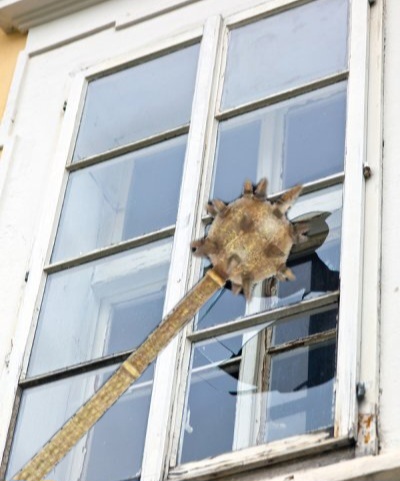If you cannot avoid the situation that causes the damage, then you cannot avoid the damage.
So what’s the situation and how do you avoid it (and thus avoid the damage)?
Its a statement that applies everywhere. Regardless of where the damage may be coming from, if you cannot avoid the thing causing damage, then you cannot avoid the damage. Physical, mental, emotional, whatever.
The “situation” is what you decide is going to lead to damage. Its up to you to determine if you can avoid it and how.
There are always signs, learn to look for them.
I had some sketchy ass friends, when the cops started questioning me over things that happened because I was a “known associate” I realised that although I was squeaky clean, I was eventually going to catch accessory charges over some shit. So I packed my car and dipped to a new state for 4 years. I didnt stick my head in the sand and think “Im not involved, it wont happen” I was realistic that one day I was going to give one of them a lift and dude would have an intent to distribute in his backpack.
Dont be ignorant in the first place, keep your eyes open and think about the possibilities.
Saying “I don’t know enough about this to comment” is an answer when asked to comment on something. Also be willing to change your mind when presented with new information. Tangentially, don’t hold it against someone when their opinions change.
That would require us to exercise a degree of humility. Tricky.
Learn from past mistakes. Learn from the mistakes of others. Learn to recognize the warnings you missed before.
To paraphrase Nelson Mandela, you don’t lose. You win or you learn.
Mindfulness, maybe?
The same way the world kept covid in check - by relying on others to be well informed, rational, responsible, and empathetic people.
Oh, wait - millions of people died because of wishful thinking, selfishness, disinformation, stupidity, and good old fashioned stubbornness. We’re fucked.
Game over, man!
I like to remind myself Tim Minchin’s song “The Fence” and remember that I don’t always have to have the answer or the opinion on every single topic. https://vimeo.com/410679852
Basically, I say to myself: sometimes it’s ok to be ignorant - as long as I’m aware that I’m ignorant.
Proactively seek out relevant info, proactively update based on new information, and murphy-jutsu/pre-hindsight (imagine the situation has failed horribly. What went wrong?), to name a few things that help
Here’s one of the key factors in living organisms, and is actually a factor in complex adaptive systems in general. We have inside of us - from a paramecium to Plato - a model of the world. That model may be very simple and encoded purely genetically, or it may reflect a lifetime of learning. Everything we see, hear, and feel is interpreted through that model.
We use that model to sense the state of our environment and predict the reaction to our actions - things going from State S1 to S2. A paramecium, when food particles bump into the receptors on the outside of its cell, will swim up the gradient. The model, encoded in the genes and realized in the anatomy and physiology of the creature, is “food exists over there at the end of this gradient” or even just “more food = better.” Likewise, it will swim away from poison. We can break it down to the exact molecules involved, but at its heart (and for evolutionary purposes) it’s a model. It’s the same as when a chimp goes fishing for termites or we get dressed up before going out.
So “ignorance” here might be interpreted as an incomplete or incorrect model. The answer is to update the model (or avoid the situation). That, and understand how to use probability and uncertainty.
I never appreciate my ignorance. If I could do without it, and so avoid danger, I would.





